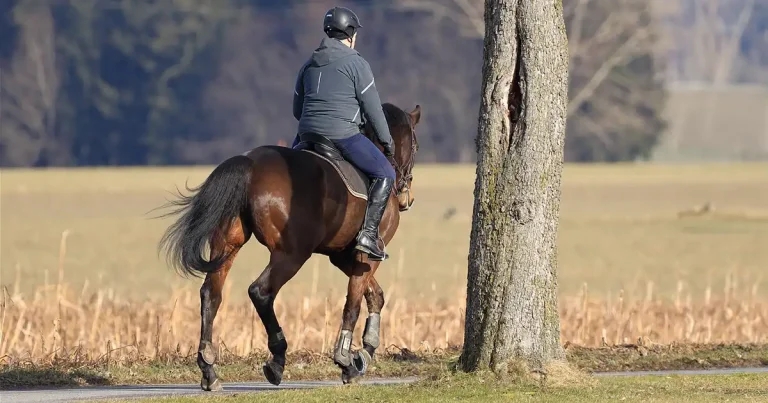16 Jun 2025
World Horse Welfare has unveiled the results of its annual YouGov survey at a panel discussion, “Public acceptance of the involvement of horses in sport: what drives trust that they live good lives?”

Image: WFranz / pixabay
Nearly 1 in 10 people who regularly interact with horses believe pain is an acceptable training method, new figures have shown.
World Horse Welfare unveiled the results of its annual YouGov survey at a panel discussion, “Public acceptance of the involvement of horses in sport: what drives trust that they live good lives?”
The survey, said to be representative of all UK adults, had a sample size of 4,600 respondents, of which 93 regularly interact with horses.
Quizzed about acceptable training methods, 8% of “horse people” felt pain was acceptable while 5% thought the same of fear, in both cases compared with just 1% of non-interactors.
Using a whip with force was deemed acceptable by 5% of horse people while use in a light tapping motion received support from more than half (51%), compared with 2% and 21% of the public, respectively. One in five (20%) horse people thought speaking to the animal in a loud voice was valid, almost double the percentage of the public (11%).
World Horse Welfare chief executive Roly Owers noted the public’s general dislike of whipping in any circumstances and said the public had “good instincts” when it came to using rewards and a soft voice as training tools.
He expressed concern about some of the responses, however, as he said: “Somewhat worryingly, a notable proportion [of horse people] were also more complacent about using a loud voice, using a whip with force, and using pain or fear to train a horse.
“These practices, of course, are unethical and not supported by the public.”
Panel chairperson Lucy Higginson said that a combined 43% of respondents believing that only some, very few, or no sport horses live good lives is a “worrying figure”.
Only 19% of non-interactors felt horses’ mental welfare is always or often prioritised.
Equine vet Brad Hill said a stronger call to action and more accountability was required regarding whip use in sport, but added: “I don’t think anyone likes punishing or hitting their horse.”
Dr Hill believes many riders are adopting more “horse-centric” training and husbandry practices, and that a “focus on ethical training methods around learning theory” can demonstrate that tools such as whips are not needed.
He said: “Horses like learning. So, if we can speak their language and get back to that, then not only can we justify what we’re doing, but we can actually say that there’s a sense of enjoyment from the horse’s point of view.”
Fédération Équestre Internationale’s veterinary committee chair Jenny Hall said the use of whips was a constant debate within the community, but the issue should not be a distraction from delivering “the core business of welfare all the time”.
Ms Hall said ethical training methods must be more widely articulated, so it is clear what the expectations are.
She added: “It’s clear what the public’s expectations are when the videos [of whipping] are in the public domain”.
Three-time Olympic dressage gold medallist Charlotte Dujardin received a 12-month suspension after footage of her repeatedly whipping a horse in training circulated ahead of last summer’s Paris games.
British Equestrian Federation eventing performance manager Dickie Waygood suggested whip protocol should be part of the annual CPD registered coaches sit.
PR expert David Yelland believes the efforts made to improve horse welfare across the sector showed it was moving in the right direction, adding: “The best PR in the world is to do the right thing, and that appears to me what you’re trying to do.”